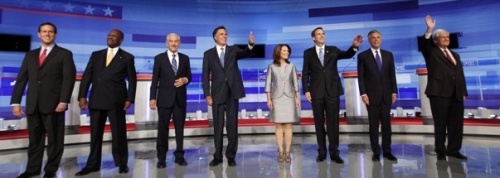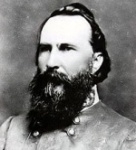 |
 |
 |
Kathleen Kennedy Townsend, writing in the Atlantic, has figured out that Jesus Christ wants you to be a Democrat. There are, you see, 2500 passages in the New Testament that call on us to care about other people. Rick Perry (and presumably others of his Republican ilk) ignores those passages, according to Ms. Townsend, when he voices “concerted opposition to government social programs”.
Now, of course Rick Perry is no more concertedly opposed to government social programs than is Kathleen Kennedy Townsend; instead, they disagree about how those programs should be structured and how extensive they should be. Not even Ms. Townsend (unless she is an even greater lunatic than she appears to be) believes that such programs should be unlimited, so her disagreement with Rick Perry is largely over where to draw the lines. Somewhere in those 2500 New Testament passages, she’s managed to discern an endorsement for her own preferred lines over Governor Perry’s. Quite a discerning reader she must be.
But it gets worse: According to Ms. Townsend’s reading of the Bible, we ought to “use all the tools we have at hand to help the poor, the sick and the hungry” — and I’m guessing that’s not someplace Kathleen Kennedy Townsend wants to go. That’s because using all the tools at hand to help the poor, the sick and the hungry means unleashing the power of capitalism. Regarding the poor and hungry, it means eliminating barriers to trade and immigration, reducing or eliminating capital taxation, and eliminating or drastically restructuring most federal regulations. Regarding the sick, it means curbing the power of the FDA, eliminating the tax deduction for employer-provided health insurance, and committing ourselves not to regulate the prices of prescription drugs. As a general rule, it means diminishing the power of the political class that Kathleen Kennedy Townsend has devoted her life to serving.



















